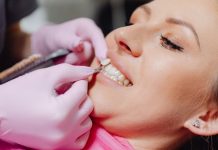Alcohol detox means giving the body time to clear alcohol and reset. When someone has been drinking often, the body gets used to it. The brain slows some signals because alcohol does that for it. When drinking stops, those signals can swing the other way. That swing is what people feel during detox. It is not a moral thing, and it is not about being “strong” or “weak.” It is a health step. The goal is simple, help the body find balance again while keeping the person safe and as comfortable as possible.
Why stopping safely matters
Some people think detox is just “tough it out.” That idea can put someone at risk. Alcohol affects the brain, the heart, and the nervous system. Stopping suddenly can cause shaky hands, sweating, trouble sleeping, a racing heart, and feeling on edge. In some cases, it can be more serious. That is why having medical support, or at least talking to a doctor, matters. Care teams can check vital signs, give fluids if needed, and use approved medicines to calm the body. They also watch for warning signs so small problems do not become big ones.
According to Shore Point Recovery, safe detox puts health first, with plans built around the person’s needs. That kind of focus helps reduce fear. It also reminds people that detox is not a test to pass, it is care for a body that has been under stress.
What the first days can feel like
The first part of detox is often the bumpiest. Sleep may be hard. Some people feel anxious, others feel flat or low. Headaches, nausea, and sweating are common. Goals in these days are basic, drink water, eat simple foods, rest, and get gentle support. Even small wins matter, finishing a sandwich, taking a short walk, calling a friend, letting the care team check in.
Feelings can be confusing. One minute there is a burst of energy, the next, tiredness hits. That is normal while the brain recalibrates its signals. It helps to keep plans simple. Pick a few easy things for the day, shower, eat, rest, and one short activity that feels safe, such as drawing, music, or a short journal note. Light structure gives the mind something kind to follow while the body works.
Read Also: Need to Sober Up Fast? Try These 3 Alcohol Detox Methods
Why medical help can make detox easier
Medical teams are not there to lecture. Their job is to keep people safe and reduce discomfort. They can use medicines that help steady heart rate, ease shakes, and lower the chance of serious problems. They check fluids and nutrition. They make a calm plan and explain what is happening in plain words. For many people, knowing there is a plan lowers fear by a lot.
Care does not have to be in a large hospital for everyone. Some people do best in a clinic or a licensed detox center. Others may be able to detox at home with doctor guidance and close support, when it is safe to do so. What matters most is the safety plan. If someone has ever had severe withdrawal, seizures, or other major health issues, medical supervision is very important. No one should feel bad for needing help. This is health care, the same as getting care for asthma or a broken bone.
What detox does for the body and mind
When alcohol is out of the system, the body can get back to normal jobs. Sleep slowly improves. Skin and eyes often look clearer. Stomach and appetite settle. Energy comes back in waves, then more steadily. The brain starts to find a new rhythm. Many people say their thoughts feel less foggy. Decisions feel easier. That does not mean every feeling is perfect. Stress and mood swings can still pop up. The difference is, the system is no longer being pushed around by alcohol, so you can work on the real problems without that extra weight.
Detox also makes the next steps possible. It is hard to plan healthy routines or talk through tough habits when the body is still reacting to alcohol. Once the system calms, there is space to build skills that help long term. Think of detox as clearing the field before planting. It is not the whole season, but without it, growth is messy and uneven.
Support that actually helps
Good support is simple and real. People do well when they have caring voices around them. That can be a trained counselor, a nurse, a doctor, a support group, a trusted friend, or a family member who shows up with kindness. Each role matters. A counselor can teach ways to handle pressure or cravings. A nurse can explain how to eat and sleep during recovery. A friend can help with rides, errands, or just time together that is calm and not focused on alcohol.
Healthy routines also help the brain settle. Regular meals, even light ones, send “you are safe” signals to the body. Water matters more than people think. Short walks or gentle stretching tell the nervous system it can slow down. Safe, steady sleep times train the brain to rest without alcohol. Screens before bed can make sleep harder, so turning them off a little earlier may help. None of this has to be perfect. Consistent “good enough” beats “perfect for a day and then nothing.”
What comes after detox
Detox is the first step, not the last. After the body stabilizes, the focus shifts to staying well. This is where learning new patterns helps. People explore what pushes them toward drinking. They look at stress, old routines, and social settings. They practice new ways to handle those moments. It might be talking it out, setting clear plans for weekends, or keeping simple tools on hand, a favorite nonalcoholic drink, a short playlist, a breathing exercise. Small tools add up. With time, cravings show up less, and confidence grows.
Medical care can continue too. Some people use approved medicines that help make urges weaker or reduce the risk of drinking again. Doctors and counselors can explain options, check how things are going, and adjust plans. There is no one “right” path for everyone. The best plan is the one a person can stick with, that keeps them safe, and that fits real life.
Clearing up common myths
One myth says detox fixes everything. Detox clears alcohol from the body, but recovery is a longer path. That is normal, not a failure. Another myth says asking for help is embarrassing. In real life, asking for help is a smart health choice. A third myth says cravings mean someone is doomed. Cravings are signals, they are not orders. Signals can be managed with skills, support, and sometimes medicine.
There is also a myth that people must hit “rock bottom” before starting. Waiting for a worst day only adds risk. Help at the first worry is better care. If someone is unsure what to do, talking with a doctor or a trusted support line is a safe first move.
Simple ways to stay steady during early recovery
Keep water nearby. Eat steady meals, even if small. Move a little each day. Plan sleep like it is a class or a shift. Keep two or three people on a contact list who will answer a text or call. Make a short card with reminders that work for you, for example, “Drink water, breathe, walk outside for five minutes.” Put it somewhere easy to see. If a rough day hits, use the card. It sounds basic, yet basic works when the brain is tired.
Set up the home space to lower triggers. Remove alcohol and items tied to drinking. Stock the fridge and freezer with easy meals. Have a go to routine for evenings, a show, a book, a craft, a bath, music, or time with a pet. Calm plans reduce the pull toward old habits.
When to get urgent help
If someone has chest pain, trouble breathing, severe confusion, a seizure, or cannot stop vomiting, that is an emergency. Call local emergency services. Safety comes first. No one should try to “wait it out” with symptoms that serious. Getting fast help protects the brain and the body.
Key takeaways and next steps
Detox is the first step because it gives the body a chance to reset, and it opens the door to real change. Stopping safely matters. Medical care and kind support lower risk and make hard moments easier. After detox, life does not flip to perfect, yet it becomes possible to build steady routines, learn new skills, and find support that fits. Small wins add up. Water, food, rest, movement, and honest help form a strong base.
Recovery is not about being perfect. It is about being safe, staying curious about what works, and trying again when a day goes sideways. If questions come up, talk with a health professional or a trusted support person. Keep plans simple and kind. With time, the body and mind settle, and feeling better becomes the new normal.




